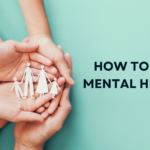Stress Relieving Tips: In the fast-paced world we live in, stress has become an unavoidable part of our daily lives. Handling work, relationships, and personal responsibilities can take a toll on our mental and physical health. However, it’s necessary to identify the signs of stress and adopt adequate plans to ease its impact. In this article, we will talk about a comprehensive list of stress-relieving tips developed to help people develop and maintain a healthier, more balanced life.
Also Read:
Stress Relieving Tips
Recognize Stress Triggers
Understanding the root causes of stress is the first step towards practical management. Take the time to recognize specific situations, people, or actions that trigger stress. Once identified, work on discovering productive ways to address or mitigate these stressors. Being aware of stress triggers is key to creating targeted stress-relief strategies.
Practice Deep Breathing
Deep breathing practices are a simple yet powerful tool to fight stress. Slow, deep breaths activate the body’s relaxation response, decreasing the production of stress hormones. Combine deep breathing into your day-to-day routine, particularly during moments of tension. Techniques such as diaphragmatic breathing and guided breathwork can be extremely useful in encouraging relaxation.
Establish a Relaxation Routine
Create a daily relaxation routine to deliver structure and consistency. This routine might contain activities such as meditation, yoga, or a calming bedtime ritual. Consistency is key, and over time, a relaxation routine can become a dedicated anchor, signaling to the body and mind that it’s time to unwind.
Engage in Physical Activity
Regular exercise is a powerful stress reliever. Physical activity triggers the release of endorphins, the body’s natural mood enhancers. Find an exercise that you enjoy, whether it’s walking, jogging, swimming, or dancing. Aim for at least 30 minutes of moderate-intensity exercise most days of the week to experience the full advantages of stress reduction.
Prioritize Sleep
Good sleep is important for overall well-being and stress management. Establish a constant sleep schedule and create a conducive sleep environment. Avoid screen time before bedtime, and consider relaxation techniques, such as gentle stretching or reading, to signal to your body that it’s time to wind down.
Time Management
Effective time management can greatly reduce stress. Prioritize tasks, break them into smaller, more manageable steps, and set real deadlines. Learn to say no when required and delegate tasks when possible. By managing your time effectively, you can stop the feeling of being dominated and create a sense of control over your responsibilities.
Disconnect from Technology
Continuous connectivity can contribute to stress and anxiety. Take breaks from your devices to unplug and recharge. Set specific times during the day to check emails and social media, and believe in implementing a digital detox day or weekend. Disconnecting allows for mental revitalization and helps set healthier boundaries between work and personal life.
Develop a Supportive Network
Share your feelings with friends, family, or a trusted confidant. A strong support network delivers emotional validation and practical help when required. Surround yourself with people who offer positive encouragement and understanding. Knowing that you are not alone in facing challenges can ease the burden of stress.
Adopt Mindfulness Practices
Mindfulness involves being present in the moment without judgment. Mindfulness practices, such as meditation and mindful breathing, can improve self-awareness and reduce stress. Start with short sessions and slowly increase the duration.
Laugh and Have Fun
Laughter is a natural stress reliever. Engage yourself in activities that bring joy and laughter into your life, whether it’s watching a comedy, playing games, or spending time with funny friends. Laughter not only decreases stress hormones but also promotes a positive outlook and enhances overall mood.
Immerse Yourself in Nature
Spending time in nature has been shown to have multiple mental health benefits. Whether it’s a walk in the park, a hike in the mountains, or simply sitting in a garden, nature has a calming effect on the mind. Consider including outdoor activities into your routine to recharge and gain perspective.
Practice Gratitude
Focusing on gratitude can redirect your mindset from stress to appreciation. Regularly take time to reflect on the positive parts of your life and express gratitude for them. Keep a gratitude journal or share your appreciation with others. This practice can promote a sense of happiness and strength in the time of challenge.
Engage in Relaxing Hobbies
Find activities that bring you joy and relaxation, whether it’s reading, painting, gardening, or playing a musical instrument. Hobbies provide a healthy platform for stress and offer a creative way to unwind. Devote time to activities that nurture your passions and contribute to a sense of fulfillment.
Set Realistic Expectations
Perfectionism and unrealistic expectations can contribute to regular stress. Set attainable goals, recognize your limitations, and be compassionate toward yourself. Remember that it’s okay to ask for help and that not everything is made to be accomplished in one day. Adjust your expectations to align with what is realistically possible.
Consider Professional Help
If stress becomes overwhelming and constant, seeking professional help is a proactive step toward well-being. Therapists, counselors, and mental health professionals can deliver valuable insights, managing strategies, and support tailored to your personal requirements. There is strength in recognizing when help is needed, and professional advice can be instrumental in guiding difficult times.
At The end
In the pursuit of a balanced and fulfilling life, effective stress management is important. By integrating these stress-relieving tips into your day-to-day routine, you can develop strength, improve well-being, and create a foundation for long-term mental and emotional health. Remember, stress is a natural part of life, but how you respond to it can make a substantial difference in your overall quality of life. Adopt these strategies, change them according to what suits your needs, and embark on a journey toward a more relaxed and balanced existence.








